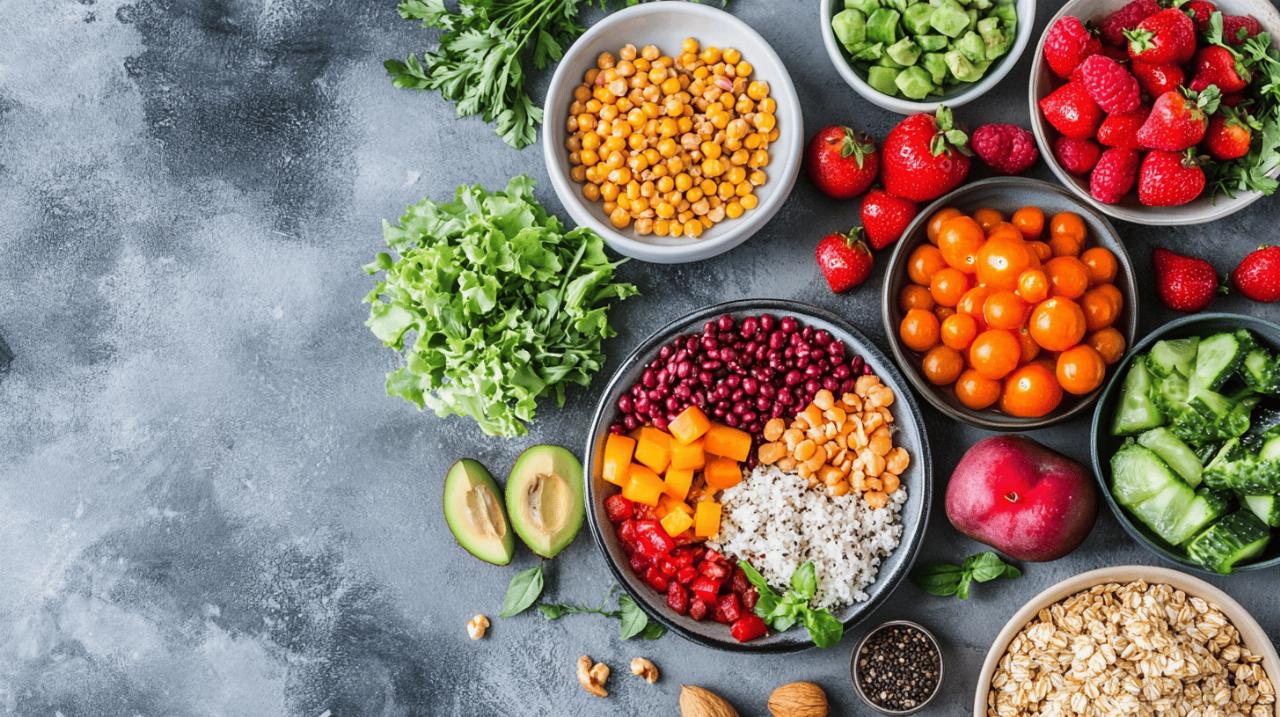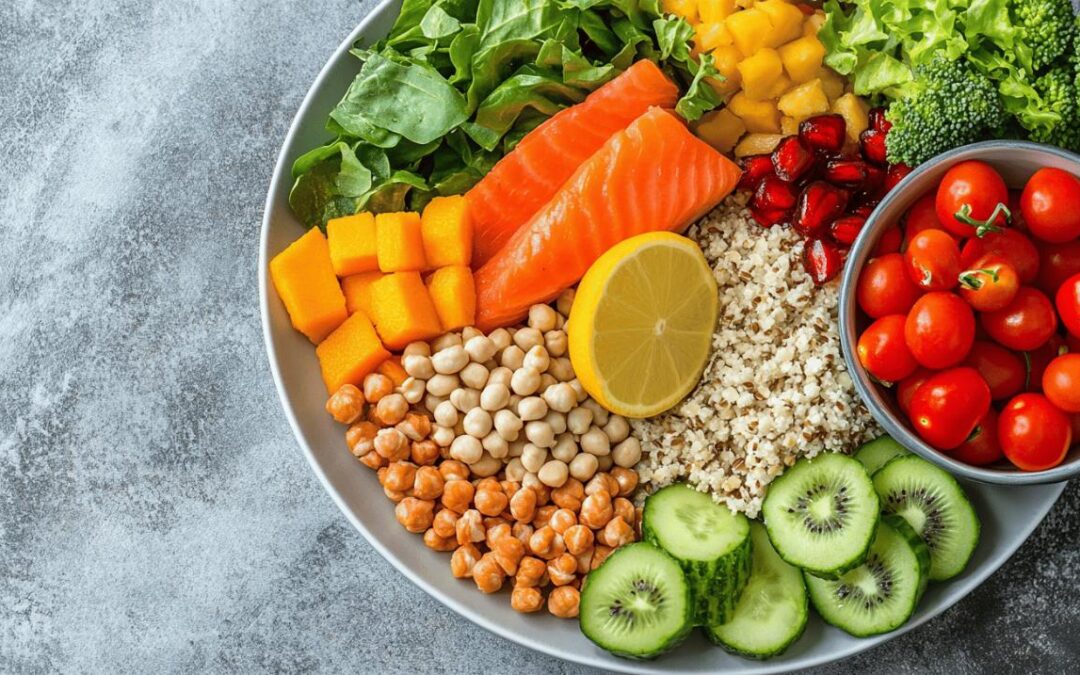Embarking on a structured nutritional approach can transform your health journey, and a carefully crafted 1200 kilocalorie daily menu offers women a practical pathway towards sustainable weight management and improved wellbeing. This targeted calorie framework, rooted in balanced macronutrient distribution and mindful eating, provides the scaffolding needed to achieve realistic goals whilst nourishing your body with essential nutrients. Understanding how to structure your meals, prioritise quality ingredients, and maintain variety throughout the week empowers you to make informed choices that support long-term vitality.
Understanding the 1200 Kcal Daily Framework: Why This Calorie Target Works for Women's Weight Management
The Science Behind the 1200 Kcal Benchmark: Metabolic Considerations and Energy Balance
The 1200 kilocalorie threshold represents a carefully calculated energy intake designed to create a moderate deficit that encourages the body to utilise stored fat for fuel. This level of calorie restriction has been shown to support a realistic weight loss target of one to two pounds per week, a pace widely regarded as both safe and sustainable. Research consistently demonstrates that even modest reductions in body weight, around five percent of your starting weight, can deliver meaningful health improvements including better blood glucose control and enhanced cardiovascular markers. The framework works by providing sufficient energy to maintain essential bodily functions whilst encouraging gradual fat loss, making it particularly suitable for women seeking to manage their weight without resorting to extreme measures.
Adopting this calorie level necessitates careful attention to nutrient density, ensuring that every meal delivers not just energy but also vital vitamins, minerals, and fibre. Many individuals in the United Kingdom fall short of recommended fibre intake, which plays a crucial role in digestive health and satiety. By prioritising wholesome ingredients such as fruit and vegetables, whole grains, and lean proteins, this meal plan addresses common nutritional gaps whilst keeping you feeling satisfied throughout the day. The structured approach also incorporates at least five portions of fruit and veg daily, aligning with established public health guidelines and supporting overall wellness.
Consulting your gp: essential pre-diet health checks and professional guidance
Before embarking on any significant dietary change, particularly one involving calorie restriction, it is essential to seek advice from your general practitioner or a member of your diabetes health care team if you manage type 2 diabetes. This precautionary step ensures that the meal plan is appropriate for your individual health status and medical history. Women who take insulin or other diabetes medication must be especially vigilant, as adjustments to food intake can affect blood glucose levels and may require corresponding changes to medication dosages.
Engaging with a registered dietitian offers additional personalised support, allowing for tailored adjustments based on your unique nutritional needs, lifestyle factors, and weight loss targets. Professional guidance helps identify potential pitfalls and provides strategies to overcome common challenges such as hunger management and social eating situations. This collaborative approach not only enhances safety but also increases the likelihood of long-term adherence and success.
Building your daily meal plan: strategic macro distribution across breakfast, lunch, and dinner
Lean proteins and nutrient-dense vegetables: crafting satisfying meals within your calorie allowance
Constructing meals around lean protein sources such as chicken breast, white fish, tofu, and legumes forms the cornerstone of an effective 1200 kilocalorie menu. Protein plays a vital role in preserving lean muscle mass during weight loss, supporting metabolic rate, and promoting feelings of fullness that help curb unnecessary snacking. Pairing these proteins with generous servings of colourful vegetables not only adds volume and visual appeal to your plate but also delivers essential micronutrients and fibre with minimal calorie cost.
Consider starting your day with a breakfast featuring Bircher muesli prepared with semi-skimmed milk or an unsweetened, calcium-fortified dairy alternative, topped with fresh berries and a sprinkle of nuts for added texture and healthy fats. Lunch might include a hearty chilli con carne made with extra lean mince and kidney beans, served alongside a crisp green salad. For dinner, a grilled salmon fillet with roasted vegetables and a modest portion of quinoa provides omega-three fatty acids and complex carbohydrates that sustain energy levels into the evening. Each meal is carefully portioned to fit within your daily calorie budget whilst delivering the nutrients your body requires to thrive.
Healthy Fats and Portion Control: Mastering the Art of Balanced Plate Composition
Incorporating healthy fats into your daily intake is not only permissible but essential for hormone production, nutrient absorption, and sustained satiety. Sources such as avocado, extra virgin olive oil, nuts, and seeds should feature regularly in your meal plan, albeit in measured quantities due to their calorie density. A tablespoon of olive oil drizzled over a salad or a small handful of almonds as part of an afternoon snack can enhance flavour and nutritional value without derailing your calorie goals.
Mastering portion control is perhaps the most critical skill in successfully adhering to a 1200 kilocalorie framework. Many recipes naturally serve multiple people, so learning to adjust quantities or freeze leftovers prevents waste and ensures consistency. Using smaller plates, measuring utensils, and pre-portioning snacks can all support accurate tracking and prevent inadvertent overeating. By developing an intuitive sense of appropriate serving sizes, you cultivate habits that extend far beyond the initial diet phase and contribute to lifelong weight management.
Practical Implementation: Hydration, Smart Snacking, and Menu Variety for Long-Term Success
Keeping Hydrated and Managing Hunger: Water Intake and Wholesome Snack Choices
 Adequate hydration is a cornerstone of any successful dietary strategy, yet it is often overlooked. Drinking plenty of water throughout the day supports metabolic processes, aids digestion, and can help distinguish between genuine hunger and thirst. Aim for at least eight glasses of water daily, adjusting upwards if you engage in regular exercise or during warmer weather. Herbal teas and infused water with slices of cucumber or lemon offer variety and can make hydration more enjoyable.
Adequate hydration is a cornerstone of any successful dietary strategy, yet it is often overlooked. Drinking plenty of water throughout the day supports metabolic processes, aids digestion, and can help distinguish between genuine hunger and thirst. Aim for at least eight glasses of water daily, adjusting upwards if you engage in regular exercise or during warmer weather. Herbal teas and infused water with slices of cucumber or lemon offer variety and can make hydration more enjoyable.
When hunger strikes between meals, reaching for wholesome snacks such as a piece of fresh fruit, a small pot of natural yoghurt, or a handful of raw vegetables with hummus keeps energy steady and prevents the temptation to indulge in fried foods or sugary snacks. A summerberry smoothie made with unsweetened dairy alternatives and a portion of frozen berries provides a refreshing mid-morning or afternoon treat that fits comfortably within your calorie allowance. Planning snacks in advance and keeping nutritious options readily available ensures you remain on track even during busy days.
Dietary Diversity: Rotating Foods to Meet Micronutrient Needs and Prevent Monotony
Variety is not merely a matter of pleasure; it is essential for meeting your body's diverse nutritional needs. Rotating different protein sources, grains, fruits, and vegetables throughout the week ensures a broad spectrum of vitamins, minerals, and phytonutrients. For example, alternating between chicken, fish, lentils, and eggs as your protein base across different meals prevents nutrient deficiencies and keeps your palate engaged.
Experimenting with herbs, spices, and cooking methods adds excitement to your meals without adding calories. A simple chicken breast can be transformed with Moroccan-spiced rubs one day and a tangy lemon and herb marinade the next. Embracing seasonal produce not only enhances flavour but also supports local agriculture and reduces environmental impact. A seven-day meal plan with built-in variety, such as those available as PDF downloads from reputable organisations, provides structure whilst encouraging culinary exploration.
Reaping the Rewards: Health Benefits and Sustainable Lifestyle Changes for Women
Weight Loss and Energy Enhancement: Measurable Outcomes of the 1200 Kcal Approach
Adhering to a well-structured 1200 kilocalorie menu can yield impressive and lasting results. Real-life success stories, such as women who have lost nearly twenty kilograms by cutting portion sizes and eliminating fried foods and sugary snacks, underscore the potential of this approach when combined with commitment and consistency. These achievements often extend beyond the scales, with participants reporting enhanced energy levels, improved mood, and greater confidence in their daily activities.
For women managing type 2 diabetes, the benefits can be particularly profound. Weight loss achieved through calorie restriction and carbohydrate counting has been shown to improve insulin sensitivity and glycaemic control, with some individuals even achieving remission of their condition. Combining a healthy diet with regular exercise amplifies these benefits, supporting cardiovascular health, bone density, and mental wellbeing. The cumulative effect of these positive changes fosters a renewed sense of vitality and empowers you to take control of your health journey.
Working with Registered Dietitians: Ongoing Support and Personalised Adjustments
Sustaining a 1200 kilocalorie diet over the long term requires more than initial enthusiasm; it demands ongoing support and periodic reassessment. Collaborating with a registered dietitian allows for personalised adjustments as your body adapts and your goals evolve. Regular check-ins provide opportunities to address challenges, celebrate milestones, and refine your meal plan to reflect changing tastes or nutritional requirements.
Professional guidance also ensures that your dietary approach remains aligned with the latest evidence-based recommendations and public health advice. Organisations such as Diabetes UK, a registered charity in England, Wales, and Scotland, offer valuable resources including downloadable meal plans and educational materials that complement professional consultations. By integrating expert advice with practical tools and your own lived experience, you create a robust framework for sustainable health that extends far beyond temporary weight loss, embedding nutritious habits into the fabric of your everyday life.

